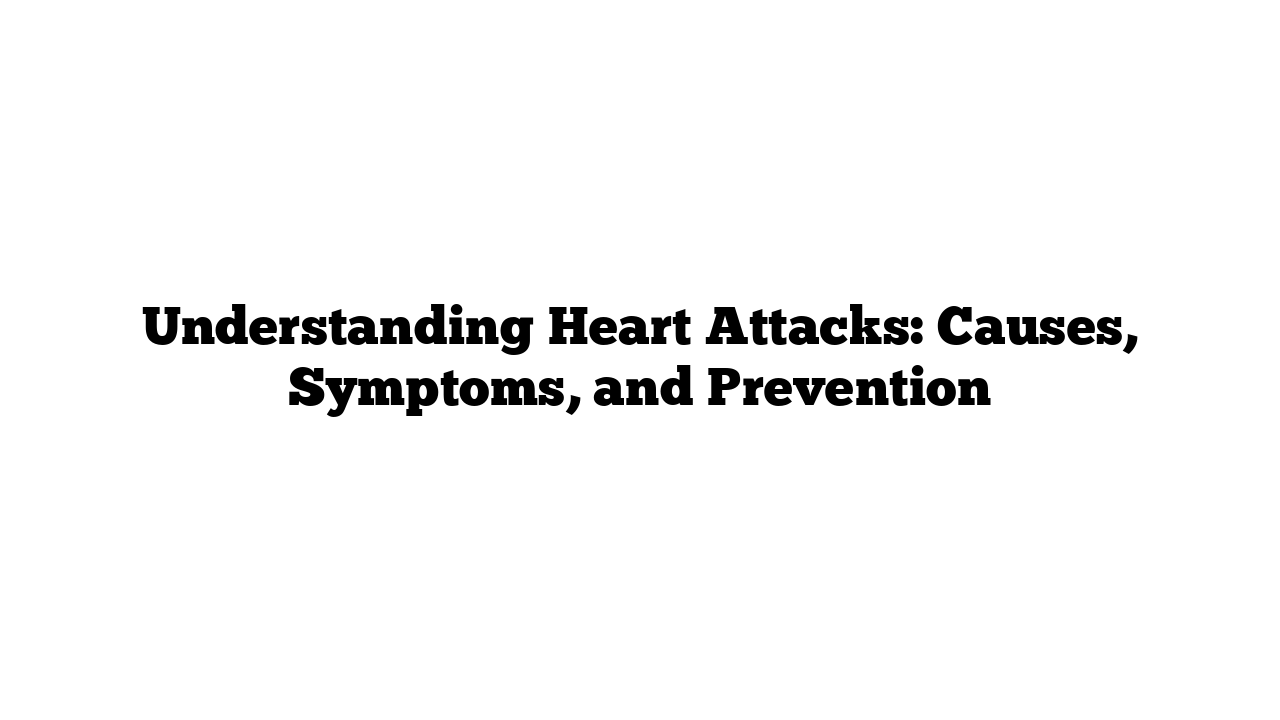Heart attacks, or myocardial infarctions (MIs), are among the leading causes of death worldwide, including the USA. A heart attack occurs when blood flow to a part of the heart is blocked, causing damage to the heart muscle. Understanding this condition can help reduce the risk and save lives.

What Is a Myocardial Infarction?
A myocardial infarction refers to the death of heart muscle due to a lack of oxygen. This often happens because of a blockage in the coronary arteries, which supply blood to the heart.
The term “myocardial” relates to the heart muscle, and “infarction” means tissue death. Without quick treatment, this condition can lead to severe complications or even death.
What Causes a Heart Attack?
Heart attacks are usually caused by:
- Atherosclerosis: Plaque buildup in the arteries narrows the blood flow.
- Blood Clots: A clot can form and block an artery, leading to a heart attack.
- Spasms in the Coronary Arteries: Temporary tightening of the arteries can also restrict blood flow.
Risk factors include:
- High cholesterol
- High blood pressure
- Smoking
- Diabetes
- Obesity
- Family history of heart disease
- Stress and sedentary lifestyles
Recognizing Heart Attack Symptoms
Heart attacks can present differently in men and women, but common signs include:
- Chest pain or discomfort (often described as a squeezing sensation)
- Shortness of breath
- Pain in the arms, neck, jaw, or back
- Nausea or vomiting
- Sweating
- Lightheadedness
Quick tip: If you or someone around you experiences these symptoms, call 911 immediately. Early intervention can be lifesaving.
How Is a Heart Attack Diagnosed?
In the USA, hospitals are equipped with advanced tools to diagnose myocardial infarctions. Common tests include:
- Electrocardiogram (ECG): Checks the heart’s electrical activity.
- Blood Tests: Look for markers like troponins, which indicate heart damage.
- Coronary Angiography: Identifies blockages in the arteries using X-ray imaging.
Emergency Treatment for a Heart Attack
Time is critical during a heart attack. Treatments aim to restore blood flow to the heart and may include:
- Medications: Such as aspirin, blood thinners, and clot-busting drugs.
- Angioplasty: A procedure to open blocked arteries using a balloon or stent.
- Coronary Artery Bypass Grafting (CABG): Surgery to create a new route for blood to flow around the blockage.
Can You Prevent a Heart Attack?
Yes, prevention is possible with a healthy lifestyle. Here are some tips:
- Adopt a Heart-Healthy Diet: Include more fruits, vegetables, whole grains, and lean protein.
- Exercise Regularly: Aim for at least 150 minutes of moderate exercise weekly.
- Quit Smoking: Tobacco damages your arteries and increases your risk.
- Manage Stress: Activities like yoga and meditation can lower stress levels.
- Routine Checkups: Regularly monitor your blood pressure, cholesterol, and glucose levels.
Recovery After a Heart Attack
Life after a heart attack often involves lifestyle changes, medication, and cardiac rehabilitation. Cardiac rehab programs are common in the USA and provide supervised exercise, education, and support to reduce future risks.
Interesting Facts About Heart Attacks
- Heart attacks occur every 40 seconds in the USA, according to the CDC.
- Women often experience less typical symptoms, such as fatigue or nausea.
- Aspirin is sometimes called the “wonder drug” for its role in preventing heart attacks.
For more information, visit medicaltimes.io for tips, explanations, and related topics.
Top 10 FAQs About Heart Attacks
- What is the first thing to do during a heart attack?
Call 911 immediately and chew an aspirin, if not allergic. - Can stress cause a heart attack?
Yes, chronic stress can contribute to high blood pressure and other risk factors. - Are heart attacks hereditary?
Family history increases the risk, but lifestyle changes can help. - How can I reduce my cholesterol naturally?
Eat a healthy diet, exercise, and avoid trans fats. - Is chest pain always a sign of a heart attack?
No, but it’s better to seek medical attention to rule it out. - Can young people have heart attacks?
Yes, though less common, lifestyle factors like smoking can increase risk in young adults. - How is a mild heart attack different from a severe one?
A mild heart attack (NSTEMI) doesn’t cause as much damage as a severe one (STEMI). - What is the survival rate of a heart attack?
Survival depends on prompt treatment; most survive if treated early. - Can heart attacks be silent?
Yes, some people experience silent heart attacks without obvious symptoms. - What foods should I avoid to prevent heart attacks?
Avoid processed foods, sugary snacks, and high-fat fast foods.
Important Links :
Heart attack – Symptoms & causes
